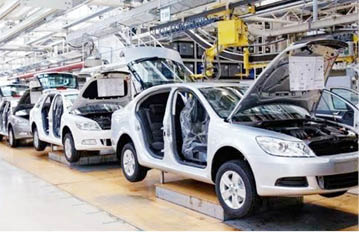The Nigerian Auto Industry Development Plan (NAIDP) Bill also known as Auto Policy Bill has suffered over a decade of delay amidst expectations from stakeholders. Will the Bola Tinubu-led government make a difference?
The NAIDP Bill has been described as an important element of growing the automotive industry value chain and increase its contribution to the gross domestic product (GDP) of Nigeria.
The NAIDP Bill, which seeks to provide, among others, a legal framework to guide investment in the automotive sector and provide incentives for investors, especially the Original Equipment Manufacturers (OEMs) willing to set up plants in Nigeria has been pending since the administration of former President Goodluck Jonathan.
Former President Muhammadu Buhari had declined assent to the bill passed by the National Assembly under former Senate President, Senator Bukola Saraki. The former president cited conflicts with some existing bills. The bill provides for a 10-year tax incentive for the auto industry and other incentives to attract investment in the sector.
- African airlines record 12.4% growth in passengers – IATA
- Yuletide: Tourism, entertainment sectors generates N111.5bn in Lagos
The federal government however promised to send a fresh bill to the lawmakers, which would address all the grey areas highlighted in the previous bill.
The then Special Adviser to the President on Ease of Doing Business, Jumoke Oduwole while explaining why the bill was rejected said the president knew the importance of the policy to the manufacturing sector in Nigeria, hence, there was a need for wider consultations to make it all-encompassing.
“We need an auto policy that will be enduring; we don’t want a policy that we will have and after a few years, we will need to change it and that is why we are calling for more contributions,” she said.
Since the bill was rejected, the federal government had promised to send a new bill to the National Assembly to address the concerns of auto stakeholders.
Former Minister of Industry, Trade and Investment, Otunba Niyi Adebayo on several occasions promised that the auto policy would be submitted to the National Assembly before the end of the Buhari’s administration. This never materialised until he was removed from office.
The Director-General of the National Automotive Design and Development Council (NADDC), Joseph Osanipin recently stated that work has reached an advanced stage to represent the bill to the National Assembly.
He however noted that the policy is already being implemented without the Act in place as it has run its entire course of 10-year tenure.
“Part of what the policy entails is that we are going to ensure that the policy becomes an Act and it has to be at par with what is obtained internationally and part of what is stated in the policy has started already,” he said.
The ongoing compressed natural gas initiative and the electric vehicle policy are part of the provisions of the bill.
Also contained in the bill are incentives for OEMs to set up plants in Nigeria while easing acquisition of brand new vehicles for Nigerians.
Experts say due to the absence of auto policy, Nigeria has missed investment opportunities by OEMs, which have decided to look elsewhere for their investment.
“Most OEMs may not commit their funds in such capital intensive projects like automotive manufacturing without an Act assuring them of zero tolerance for policy summersault,” said Mr. Mamudu Luqman, former acting Director-General of NADDC.
Executive Secretary of Nigeria Automotive Manufacturers’ Association (NAMA), Remi Olaofe said the delay in having the auto policy Act has cost the nation unquantifiable losses.
One of the important provisions of the bill is the auto financing scheme, which would enable Nigerians to buy brand new vehicles.
Already, the used vehicle market has become saturated despite the existence of assembling plants licensed under the NAIDP. However, without the requisite investment, most of the assembly plants are operating below capacity and as semi-knocked down (SKD) plants when they ought to have transited to CKD.
With a new minister recently in the saddle under the Renewed Hope government of President Bola Tinubu, stakeholders are anxious to see a new auto policy bill being presented to the National Assembly.

 Join Daily Trust WhatsApp Community For Quick Access To News and Happenings Around You.
Join Daily Trust WhatsApp Community For Quick Access To News and Happenings Around You.


